#which is a pretentious crisis to have
Text
I’m worried about the kids these days.
#Just seeing a lot of young people with problems#and they go to a wild conclusion about how to fix them#When I feel like I know the solution#but I can't say anything because they aren't in a place to listen#or at least#not in a place to understand#and will more than likely just cut ties with me#Not that I'm super wise in this world#but I'm probably happier than the average person which must count for something#definitely less mentally ill than pretty much all of my co workers#may have given me an inflated sense of mental fortitude#Also not going to act like this sentiment is anything new#Just wish I had someone by my side in this. Feel sort of alone and it makes me wonder if I had someone I wouldn't go through#"Am I crazy#or is the world?#which is a pretentious crisis to have
0 notes
Note
Do the Scoundrel's dreams have lots of cardgame motifs and the presence of a monkey
oh absolutely.
the scoundrel's nightmares are like. it is seated at a poker table. this is everything they've ever wanted. this is everything they've ever waited for. this is what their life has been building towards. they have no purpose or reason for existing other than this. its opponent lays down a dead man's hand. the opponent is a monkey. it is wretched and foolish and they are better than it could ever hope to be. it looks down. the cards are blank. they shuffle and draw and their hand comes up covered in blood holding an overripe fruit. the monkey looks them in the eyes and asks if they're worthy of this. they don't know. there's sun in their eyes and roses growing in their throat and they have absolutely no idea. there is a hollowness in its chest and they keep scratching at it and they come up empty and there is only stardust and they look up at the ceiling and they can't recognize their face in the mirror anymore. it picks at its skin. it comes up empty. this is everything they've ever wanted.
and it is seated at a poker table. there is no opponent. they sit alone in a field of flowers and their only prize is a single bloodstained fig and it is wretched and foolish and they are no better than they started.
and they sit there awhile. picking at the flowers. picking at their skin. staring at the stars. they feel hungry. it is peaceful. they feel hungry. they never let go of the fruit.
and then they wake up, drink seven bottles of wine, bully the doomed scientist, hold a railway board meeting to enact several hundred dozen labor law violations, break into a building, break out of jail for reasons entirely totally definitely unrelated to breaking into said building, and end their afternoon by diving directly into the nearest reflective surface to continue hunting birds for sport
#i should clarify the scoundrel doesn't have anything to do with seeking (that's the scientist's problem)#their hunger is. well not exactly weirder that's a high high high bar to clear. it is however distinctly different in nature#ask#fallen london#to clarify im using they/it for the scoundrel here#i'd imagine gambling is a reoccurring Theme in their dreams tbh. which. yeah that tracks given. gestures vaguely#to put this ask in a way funnier significantly less pretentious way: the scoundrel is like#having a midlife existential crisis at the ripe young age of (insert however old they are). but also they're just#REALLY hardcore in denial about it. and also it's still absolutely full of itself the whole time (derogatory)#scoundrelventures
5 notes
·
View notes
Note
☕️ sliiightly late but would love to hear your thoughts on Tom King (I get the impression you’re not a fan? - ive only read one book of his (heroes in crisis) and a couple issues of mr miracle but I always see people talking about how great some of his books are)
Lol I am indeed not a fan. BUCKLE UP, FRIEND.
So two things about Tom King that give him such a good reputation outside of fandom circles: one, he is regularly paired with some of the best artists in the industry, which means his books look incredible. I mean, just astonishingly beautiful all around.
And two, he is very good at including certain signifiers that indicate "this is a prestige comic." It's hard for me to describe it - it's an "I know it when I see it" kind of thing - but there are certain ways of writing and laying out a comic that signal seriousness, intelligence, boundary-pushing. Art with a capital A.
The easiest example I can give is the nine-panel grid, which is exactly what it sounds like: a page of three panels by three panels, all the same size. This is associated with older comics (like, Golden and Silver Age) because it's so simple, but also it's very very associated with Watchmen. So now when people trot it out there's an element of "Look at me! I'm just like Alan Moore!"
Tom King looooves the nine panel grid. He uses it a ton in Mister Miracle (Kirby used it a lot so this kind of makes sense) and Heroes in Crisis, especially for the therapy sessions. And there's this thing in the industry where people see a nine panel grid and they're like "Oh! This comic must be Smart." But if you scratch a lot of Tom King's work, it has very little substance beyond a sort of complacent nihilism.
(Geoff Johns also used the nine panel grid to signify that he is An Intellectual Writer now with Three Jokers, which was fucking hilarious. Geoff Johns is the Michael Bay of comics and he was trying to be Wes Anderson. It was embarrassing for him.)
And actually, speaking of Tom King and Watchmen, Heroes in Crisis has a great example of how he's using shorthand instead of, like, building a real story. There's a moment where Clark tells Bruce and Diana that someone anonymously sent all the superheroes' therapy footage to Lois, and they're like "She can't publish it," and Clark's like "She's a journalist. She did it 35 seconds ago."
This is a reference to a very very famous line in Watchmen, when Ozymandias is talking about his plan and then reveals that "I did it 35 minutes ago." But Heroes in Crisis has nothing to do with Watchmen, and Lois's actions (publishing private medical information for no reason) have nothing to do with Ozymandias's (dropping a fake alien squid on New York to end the Cold War; also, sorry for the Watchmen spoilers). It also has zero consequences, either within Heroes in Crisis or in later comics.
That moment serves literally no purpose except for Tom King to tell the reader "I've read Watchmen." Which...is not really much to brag about? I'm pretty sure it's the bestselling graphic novel of all time. Lots of people have read it, dude. The line has no story or character purpose, it's just the equivalent of like...teenage boys quoting Rick and Morty or whatever at each other to signal that they're an in-group. Except pretentious. It's like if teenage boys quoted Proust at each other. (That would actually be amazing.)
And in fact - and this is my big beef with King - the line actually harms the story, because it's wildly out of character for Lois (and Clark, who fully supports her decision here). Why on earth would Lois publish the private medical information of dozens of people, many of whom are her husband's friends, or even her friends and in some cases family? It's not newsworthy, it's deeply unethical, and she doesn't know who her source is. It makes zero sense that she would publish it, and equally zero sense that Perry would allow her to - they're the Daily Planet, not fucking TMZ. But she does it...so that Clark can paraphrase Watchmen. Okay???
And that's the big problem with King. He has no knowledge or understanding of the vast majority of characters that he writes, nor does he care to learn. He is a fundamentally ignorant and lazy writer. Heroes in Crisis really exposes this, because it uses so many characters, and he gets so many of them wrong, and it's so clear that he like...Googled shit with no context.
Like, take Kyle Rayner. King has him praying in Spanish, and like...okay, sure, Kyle's dad is Mexican. Except Kyle didn't know that until he was well into his twenties! He literally had no idea that his father was Mexican or that he himself was Latino until he was an adult, and while he does canonically speak a second language in the comics, it's Irish. In both HiC and Omega Men, King writes Kyle as devoutly Catholic, when Kyle has never been shown to be religious in any other comic. King just went "Oh his dad's Mexican, he must be Catholic and fluent in Spanish." Now, I'm not saying we shouldn't have comics where Kyle engages with his Mexican heritage, but this is just a stereotype.
King also has this trick where he goes back to a character's debut issue and does a close reading of it to inform his writing, and everyone congratulates him on his deep cut...but he reads nothing else about the character. In Supergirl: Woman of Tomorrow, the only Supergirl comic he references out of 63 years of canon is her first appearance, which is all of 8 pages long. Way to dig deep in that research, champ.
His book Danger Street was touted as celebrating the obscure characters of the DCU, but it was really just utilizing this trick to the max, because it was all about characters from a comic from the 70s called 1st Issue Special, which was dedicated to trying out new characters and concepts, so it was a whole bunch of debuts. I only skimmed part of Danger Street while researching something else, so I can't claim an in-depth reading, but one of those 1st Issue Special characters was the blue Starman, Mikaal Thomas. King uses that 1st Issue Special debut issue and literally none of Mikaal's other appearances to inform his writing. And you might say, well, okay, that's an obscure character so who cares? But Mikaal is a historically significant character who was half of DC's first on-page gay kiss in a mainstream comic, and you can't even tell from King's take on him that he's queer, because surprise surprise, his queerness wasn't in his 1976 debut but was a later development. And everything Mikaal does doesn't have to center his sexuality first and foremost, but it would have been nice if it seemed like King was even aware of it.
King also doesn't understand, like...really simple themes. I thought Mister Miracle was really good when I read the first issue...and then the story kept going, and I was like "Ohhhh he doesn't understand the point of the Fourth World at all." And the Fourth World is, like...the least subtle Kirby ever was, and Kirby was never subtle. Anyway Scott Free is a hero and Orion is also a hero, and if you don't understand that basic fact and how it is the central theme of the Fourth World - that given the chance, good will always be stronger than evil - you need to go back to remedial comics school.
AND FINALLY (lol sorry), all of his comics are just...miserable. They're about terrible people being terrible to each other. Which...is fine, I guess? But it's not why I personally come to superhero comics.
So yeah: I don't like King's work because he doesn't actually know what he's talking about, he doesn't do any substantive research, and he's so cavalier with the characters that he's been given temporary charge of that even DC has made almost all of his writing out-of-continuity after the fact. And the fact that the comics establishment treats him like he's some kind of genius makes me want to scream.
60 notes
·
View notes
Text
The problem with Trevor
Throughout my life I’ve been a fan of many different properties. And, as I’m a fan of them, I try my best to reach out and make some connections with people who share that interest. Along the way, I’ve come across many bad takes for many different things. Shameless (US) is one of those fandoms that have an assortment of bad takes in its space. For the most part, I’ve been able to address things and then move on. But, there’s been one take that has plagued me and driven me up the wall.
“People hate Trevor because he’s not toxic.”
This was something that was said to me to justify why some in the Shameless fandom didn’t vibe with Trevor. Not only do I find this an odd stance to take, it’s also just not correct. And I want to break down what is wrong with this statement.
But first, let me address something. Some of the hate towards Trevor is unwarranted. Some of the hate towards Trevor is unfair. And some of it is straight up transphobic. Those reasons are wrong, invalid, and will not be present in this analysis of mine and if I see it happening, I will block you. With that being said, I will go on to explain the valid reasons why I, and many others, do not enjoy Trevor as a character.
At first, I was inclined to like Trevor. He seemed nice enough (if a bit bland), gave representation to queer trans men (of which they have few), and he introduced Ian to the queer world. Why wouldn’t I like that? But, slowly, he started to bother me in many different ways. There was a pretentious element to him, an arrogance and rudeness that he showed in reference to Ian. There was a demand that Ian understand every facet of him but, in the same breath, refused to extend that back.
I tried to ignore these feelings out of guilt. I didn’t want to hate the trans character who was helping Ian to know his community. Then one scene struck me, made me angry. Monica had come back to town and Ian was uncomfortable and upset by her presence. He tried to voice these emotions to Trevor but, as I said, Trevor never tried to understand Ian’s feelings. He brushes Ian’s feelings aside and tells him he needs to get over it. Ian leaves with anger filling his veins. And never once did Trevor apologize for overstepping his bounds. Now, I will admit, the scene was a bit messy and Ian didn’t look very good himself. But that was my first true bitter taste for Trevor forming.
Still, I was determined to like him. That was, until I watched season 8.
Season 8 is a bit of a polarizing topic within the Shameless fandom. Some appreciate the decision to show the character’s less than desirable attributes unashamedly. Others feel it’s a bit too mean spirited. Whatever side of the fence you stand on though, a lot of people seem to agree that this is the season where it was abundantly clear how little Trevor cares about Ian’s wellbeing.
Throughout the season, it was abundantly clear that Ian was going through a manic episode. Ian becomes obsessive, angry, aggressive, downright cruel at some points. He is sinking and we are watching as everyone else turns a blind eye to his increasingly erratic behavior. Including Trevor.
Trevor, who has dedicated his life to those in trouble, offers no help to Ian in what is clearly a mental health crisis. In fact, for the majority of the season, Trevor sits back with a smirk on his face as Ian fights for his cause. He allows Ian to sink into his obsession, anger, aggression because it ultimately benefits him and what he cares for. Ian is walking closer and closer to the edge and those around him are choosing to not step in, not offer help. Instead, they wrinkle their noses in disgust and get angry at Ian for being in the way of their goals. And ultimately that is what happens with Trevor.
Slowly, Trevor begins to realize that Ian’s actions and behaviors are no longer reflecting well on his cause. There is also the ego bruise that Ian is now no longer focused on Trevor anymore which he voices to Fiona. He offers some hollow words about how he hopes that Ian is taking care of himself (ie; taking his medication). But I say hollow because when Ian finally breaks down and seeks out Trevor out of fear and exhaustion, Trevor offers him no help. He just rolls his eyes at Ian and accuses him of loving the growing attention (and hostility associated with that attention). He calls him selfish and then he walks away, leaving Ian feeling even more lost and tired. Ian was calling out for help in that scene and was instead scolded like he was a spoiled child throwing a fit at the supermarket. Shortly after this, Ian sets fire to a van and gets arrested. Trevor is never seen again.
I wanted to like Trevor. I wanted to be on Trevor’s side. I wanted to root for his relationship with him. I felt guilty whenever I cringed away from him. I felt like a hypocrite that his actions were affecting me in such a strong and visceral way when I can forgive other characters for the same. It took me months to finally admit to myself that I didn’t like Trevor. And I was truly heartbroken when I came to that conclusion.
The problem with Trevor is not that he is trans. The problem with Trevor is not that he’s not Mickey. The problem is that he was meant to be the solution. He was meant to be the better choice for Ian as opposed to Mickey. The Shameless writers did everything in their power to convince us that Trevor was kind, thoughtful, mature, and loved Ian. But more often than not he was shown to be petty, bitter, self righteous, and condescending beyond words. In the writers efforts to create a character that is supposed to be the definition of good they instead shone a light on his bad characteristics. For every act of kindness we would see him partake in there was him putting pressure on Ian to get into a relationship. There was the dismissal of Ian’s trauma and abuse. There was the lack of empathy when Ian was going through grief. There was the use of fat men to boost his ego. There was the benefiting from Ian’s declining mental health. And those things became harder to ignore when the writers seemed to be deep in denial about the cruelty they put in him. So, no. People don’t hate Trevor because he’s “not toxic.” People hate him because he’s not a good fit for Ian.
86 notes
·
View notes
Note
Hey yall!! I have to say just how much I appreciate the blog and especially the tagspost (the one pinned, sorry, don’t know the right word), it has helped me find the best fics for me! I have gone through all of the warlock dowling fics, but was wondering if you had any more? Specifically any having to do with crowley being a mother-figure to warlock. Thank you again!!
Hello. We do have a plentiful #warlock downing tag. Here are more to add, a couple of newer and a couple of older fics...
Dear Hellspawn by Schlorzdottir (T)
After his nanny and the gardener abruptly leave, a confused and lonely Warlock finds a poem that Nanny wrote for him.
On a Sunday Afternoon by lazysundayafternoon (G)
Nanny and Warlock sometimes go on weekend outings to London.
Once, they went to a very special bookshop.
Family by Association by otherhawk (G)
Warlock Dowling is over-dramatic, insecure and inclined towards running away, which makes sense since he was primarily raised by a certain over-dramatic demon. After the apocalypse Warlock heads home to England to find his nanny.
Raising Hell (Drops of Heaven) by Crystalshard
When Warlock's parents die, Aziraphale and Crowley step in to raise the kid on their own.
It takes several childhood incidents, a birthday party, and a near-Apocalypse before Warlock finds out exactly what his fathers are.
(They're a family. He knew that all along.)
When the World Needed Her Most, Nanny Ashtoreth Returned by yetrop (T)
Crowley didn’t bother explaining any further, instead placing his head back in his hands. “I don’t even know why I’m saying anything nice about him. I’m not supposed to be nice. Besides, I should be focusing on everything else he’s got wrong with him, and trust me, there’s a lot.”
“Like what?” asked Warlock, who suddenly seemed interested in the conversation again now that he knew he could get some dirt on kind old Brother Francis.
“Well, he’s always living in the past, for one. And furthermore, he’s naive, and petty, and he can be so obnoxiously pretentious, and…” Crowley’s voice trailed off, looking for more negative qualities, but only finding one agonizing truth. “...And I miss him so much that it physically hurts.”
—
The last person Crowley expects to run into a few months after his fight with Aziraphale is Warlock. Luckily for him, Warlock is an expert at helping people through breakups (according to Warlock, that is).
A Shepherd’s Crook by angelwithawand (T)
For the first time, Crowley realizes that he doesn’t have a couch in his Mayfair flat. Naturally, this fact sends him into an existential crisis. Naturally, this existential crisis ends with him adopting a child.
- Mod D
44 notes
·
View notes
Quote
Gretchen: I think the best-known example of do you do the source language versus the target language in terms of plural in English is a certain little creature with eight legs.
Lauren: The octopus.
Gretchen: The octopus.
Lauren: Which I just avoid talking about in the plural at all to save myself a grammatical crisis.
Gretchen: I admit that I have also done this. If you were gonna pluralise “octopus” as if it’s English, it would just be “octopuses.” It’s very easy. But there’s a fairly long-standing tradition in English of when a word is borrowed from Latin to make the plural the actual Latin thing. Because, historically, many English speakers did learn Latin, and so you want to show off your education by using the Latin form even though it’s in English. So, if you’re going to pretend that “octopus” is Latin, then you wanna say, “octopi.” However, there is yet a third complication, which is that “octopus,” in fact, is actually Greek – “octo” meaning “eight” and “pus” meaning “feet. So, Greek does not make these plural by adding I to it. In that case, there has recently become popular a yet even more obscure and yet even more pretentious, to be honest, plural.
Lauren: Is there where you say, “octopodes”?
Gretchen: Well, this is where I used to say, “octopodes.” But I have recently learned that, apparently, it is, for maximum pretentiousness, /aktaˈpodiz/.
Lauren: You’ve out-pretentioused my out-pretentiousness.
Excerpt from Lingthusiasm episode ‘Many ways to talk about many things - Plurals, duals and more’
Listen to the episode, read the full transcript, or check out more links about morphology, syntax, and words.
#Language#linguistics#lingthusiasm#podcasts#quotes#plural#plurals#grammar#words#English#Latin#duals#octopus#octopuses#octopi#octopodes#pronunciation#maximum pretentiouness#morphology#syntax
254 notes
·
View notes
Text
““Dorothy reminds me in so many ways of Toni Morrison,” West said. “You know Toni Morrison is Catholic. Many people do not realize that she is one of the great Catholic writers. Like Flannery O’Connor, she has an incarnational conception of human existence. We Protestants are too individualistic. I think we need to learn from Catholics who are always centered on community.”
(…)
She viewed belief in God as “an intellectual experience that intensifies our perceptions and distances us from an egocentric and predatory life, from ignorance and from the limits of personal satisfactions”—and affirmed her Catholic identity. “I had a moment of crisis on the occasion of Vatican II,” she said. “At the time I had the impression that it was a superficial change, and I suffered greatly from the abolition of Latin, which I saw as the unifying and universal language of the Church.”
Morrison saw a problematic absence of authentic religion in modern art: “It’s not serious—it’s supermarket religion, a spiritual Disneyland of false fear and pleasure.” She lamented that religion is often parodied or simplified, as in “those pretentious bad films in which angels appear as dei ex machina, or of figurative artists who use religious iconography with the sole purpose of creating a scandal.” She admired the work of James Joyce, especially his earlier works, and had a particular affinity for Flannery O’Connor, “a great artist who hasn’t received the attention she deserves.”
What emerges from Morrison’s public discussions of faith is paradoxical Catholicism. Her conception of God is malleable, progressive, and esoteric. She retained a distinct nostalgia for Catholic ritual, and feels the “greatest respect” for those who practice the faith, even if she herself wavered. In a 2015 interview with NPR, Morrison said there was not a “structured” sense of religion in her life at the moment, but “I might be easily seduced to go back to church because I like the controversy as well as the beauty of this particular Pope Francis. He’s very interesting to me.”
Morrison’s Catholic faith—individual and communal, traditional and idiosyncratic—offers a theological structure for her worldview. Her Catholicism illuminates her fiction; in particular, her views of bodies, and the narrative power of stories. An artist, Morrison affirmed, “bears witness.” Her father’s ghost stories, her mother’s spiritual musicality, and her own youthful sense of attraction to Christianity’s “scriptures and its vagueness” led her to conclude it is “a theatrical religion. It says something particularly interesting to black people, and I think it’s part of why they were so available to it. It was the love things that were psychically very important. Nobody could have endured that life in constant rage.” Morrison said it is a sense of “transcending love” that makes “the New Testament . . . so pertinent to black literature—the lamb, the victim, the vulnerable one who does die but nevertheless lives.”
(…)
Morrison is describing a Catholic style of storytelling here, reflected in the various emotional notes of Mass. The religion calls for extremes: solemnity, joy, silence, and exhortation. Such a literary approach is audacious, confident, and necessary, considering Morrison’s broader goals. She rejected the term experimental, clarifying “I am simply trying to recreate something out of an old art form in my books—the something that defines what makes a book ‘black.’”
(…)
Morrison was both storyteller and archivist. Her commitment to history and tradition itself feels Catholic in orientation. She sought to “merge vernacular with the lyric, with the standard, and with the biblical, because it was part of the linguistic heritage of my family, moving up and down the scale, across it, in between it.” When a serious subject came up in family conversation, “it was highly sermonic, highly formalized, biblical in a sense, and easily so. They could move easily into the language of the King James Bible and then back to standard English, and then segue into language that we would call street.”
Language was play and performance; the pivots and turns were “an enhancement for me, not a restriction,” and showed her that “there was an enormous power” in such shifts. Morrison’s attention toward language is inherently religious; by talking about the change from Latin to English Mass as a regrettable shift, she invokes the sense that faith is both content and language; both story and medium.
From her first novel on forward, Morrison appeared intent on forcing us to look at embodied black pain with the full power of language. As a Catholic writer, she wanted us to see the body on the cross; to see its blood, its cuts, its sweat. That corporal sense defines her novel Beloved (1988), perhaps Morrison’s most ambitious, stirring work. “Black people never annihilate evil,” Morrison has said. “They don’t run it out of their neighborhoods, chop it up, or burn it up. They don’t have witch hangings. They accept it. It’s almost like a fourth dimension in their lives.”
(…)
Morrison has said that all of her writing is “about love or its absence.” There must always be one or the other—her characters do not live without ebullience or suffering. “Black women,” Morrison explained, “have held, have been given, you know, the cross. They don’t walk near it. They’re often on it. And they’ve borne that, I think, extremely well.” No character in Morrison’s canon lives the cross as much as Sethe, who even “got a tree on my back” from whipping. Scarred inside and out, she is the living embodiment of bearing witness.
(…)
Morrison’s Catholicism was one of the Passion: of scarred bodies, public execution, and private penance. When Morrison thought of “the infiniteness of time, I get lost in a mixture of dismay and excitement. I sense the order and harmony that suggest an intelligence, and I discover, with a slight shiver, that my own language becomes evangelical.” The more Morrison contemplates the grandness and complexity of life, the more her writing reverts to the Catholic storytelling methods that enthralled her as a child and cultivated her faith. This creates a powerful juxtaposition: a skilled novelist compelled to both abstraction and physicality in her stories. Catholicism, for Morrison, offers a language to connect these differences.
For Morrison, the traits of black language include the “rhythm of a familiar, hand-me-down dignity [that] is pulled along by an accretion of detail displayed in a meandering unremarkableness.” Syntax that is “highly aural” and “parabolic.” The language of Latin Mass—its grandeur, silences, communal participation, coupled with the congregation’s performative resurrection of an ancient tongue—offers a foundation for Morrison’s meticulous appreciation of language.
Her representations of faith—believers, doubters, preachers, heretics, and miracles—are powerful because of her evocative language, and also because she presents them without irony. She took religion seriously. She tended to be self-effacing when describing her own belief, and it feels like an action of humility. In a 2014 interview, she affirmed “I am a Catholic” while explaining her willingness to write with a certain, frank moral clarity in her fiction. Morrison was not being contradictory; she was speaking with nuance. She might have been lapsed in practice, but she was culturally—and therefore socially, morally—Catholic.
The same aesthetics that originally attracted Morrison to Catholicism are revealed in her fiction, despite her wavering of institutional adherence. Her radical approach to the body also makes her the greatest American Catholic writer about race. That one of the finest, most heralded American writers is Catholic—and yet not spoken about as such—demonstrates why the status of lapsed Catholic writers is so essential to understanding American fiction.
A faith charged with sensory detail, performance, and story, Catholicism seeps into these writers’ lives—making it impossible to gauge their moral senses without appreciating how they refract their Catholic pasts. The fiction of lapsed Catholic writers suggests a longing for spiritual meaning and a continued fascination with the language and feeling of faith, absent God or not: a profound struggle that illuminates their stories, and that speaks to their readers.”
51 notes
·
View notes
Text
I just finished the Time Killing Event, it was awesome, love our trio of detectives. There are just some things I want to ramble about:
Spoilers below:
Tw: suicidal thoughts, suicidal behaviour (even if it is not stated as this and that it may not be to that extent, I prefer to put this in case, so if you’re uncomfortable with these subjects, don’t go past the photo and stay safe)
Just wanted to start with, it was an event so funny, I really liked the comical situations and the story.
I loved all the illustrations (there were so many, it was so nice)
loved the interactions between the members of the bus
loved the focus we got on Rodya and also the bit of focus we got on Ryoshu (it was super nice to see that she had warmed up to the other sinners)
Dante please go talk to Ryoda, she needs to tell someone how she feels and put off her mask for the moment of a conversation
But I have to just ask: Hong Lu, are you okay?
Because like 60% of the time Hong Lu spoke I was like: wait what

Hong Lu are you okay ?! What do you mean “when my siblings tried to kill me”, what do you mean “the first time”?! And what did you just say about your family ?!
I know, we knew Hong Lu’s past was probably as messed up as his family, and this event really confirmed it. But the way he talked about it, the way he talked about the first time (implying that there was others times) his siblings tried to kill him, how he proposed himself to be a bait to this time killing distortion, it was so unsettling but also kind of sad ‘cause Hong Lu clearly doesn’t care about his end or even, in a certain way, himself. And the fact that he understood them wanting him dead, either because Hong Lu also wishes to be dead, or (and that’s probably more this case) Hong Lu understood their hate for him because Hong Lu knows how to read people and how to understand them at a, sometimes, really deep emotional level. We saw it with Yi Sang, we saw it many times, Hong Lu is capable of very profound empathy.
Okay, sometimes he said things that are very off with what the sinner usually meant and so it passes as something pretentious or said by a rich guy who never had to live a hard life but sometimes those lighthearted comments also convey a form of truth or clue for the others to understand.
Hong Lu gave so much the impression that he wouldn’t mind dying or at least doing something akin to dying. And the fact that he just want to experience a lot of things before having to go back to his family I guess, is still concerning for me because even though it seems that his family agreed on having Hong Lu going on a trip, I can’t help but getting the impression that Hong Lu is a teenager who allegedly ran away from home following a crisis with his family. And I know Hong Lu never phrased it like that and everything is pointing toward him going on a little trip with his family’s authorisation , but I can’t shake off this impression that that’s not the case …
And this sentence about the world staying unchanged, what does this mean??? Of course, it made me think about the book, but I don’t know yet how to put it together yet. You see, if I get it right, one of the thing The Dream of Red Chamber tackles is this notion that nothing is truly unchanging, even more, that things are constantly changing and so never the same, never a fix thing/identity. And these changements are something that Jia Baoyu has to learn and recognise as being a part of his mortal life in “our” world. And there is more and more to this theme but I am not going to dwell on this now…
Bref, Hong Lu made it clear that he lived through the Hunger Games when he was with his family and that there are many things wrong with this latest and Hong Lu’s past and everything surrounding it…
Still no mentions of Lin Daiyu, I keep wondering where will she fit in all of this…
Hong Lu also mention his second oldest aunt which could be Lin Daiyu’s mother (Jia Min) or Xue Pan and Xue Baochai’s mother (Aunt Xue) and Baochai is the one who ends up marrying Jia Baoyu in the book …
Anyway, I am also glad that this event highlighted once again that fact that Hong Lu knows how to read people on an emotional level.
On another note, the story of Hong Lu’s new identity was nice because once again it proves that Hong Lu knows how to observe and analyse others and details but his left eye was not mentioned… so idk what to think because is it it hidden between the lines ? Is his left eye not involved in this ? Or is this a reference to the book? See, for the third option, which I find interesting, it reminded me of the fact that even though the jade with which Baoyu was born is recognise as something precious and magical, its existence is not really questioned nor are his magical powers. Nobody really question how, why Jia Baoyu comes to be born with a jade in his mouth, its just a fact.
#limbus company#Time killing event#limbus company spoilers#Ryoda lcb#hong lu lcb#ryoshu lcb#just some thoughts on the last event#i have to reread the book
26 notes
·
View notes
Text
Ranking TLT Characters by How Much I’d Like to Smoke With Them
in another installment of “posts literally no one wants” i will be breaking down which tombies id wanna smoke with the most and why, ranked from least to most want to smoke with them. I am not doing Everyone bc that wd kill me to death. i thought so much harder ab this than i meant to godbless
14. the second house. why wd i wanna smoke with fucking cops? NEXT!!
13. the eighth. why wd i wanna smoke with a creepy priest and his creepy cousin or uncle or whatever i forgot bc i do NOT care ab them
12. alecto. i just dont think she wd be able to get high which wd make the whole thing very awkward
11. nona. cd probably get high bc its a human body but i think she wd get paranoid. however if she cd handle it i think she wd be fun
10. john. if i wanted to get high with a pathetic old man i wd call my dad
9. the fifth. i think they wd a bring a fun and cool vibe but also they have very strong parent energy and i hate being high around my parents
8. ianthe. she wd be all “ohh yeah i know how to smoke i LOVE doing drugs im cool” and then she wd start coughing. but i also cough a lot so this cannot impact her ranking very much. i also just think she wd be annoying but in a fun way. wd not share her weed
7. corona. same as yanthe but more likely to share her weed bc of her liberalization.
6. pal. philosophical high, kind of pretentious but i like him so i am kicking my feet and twirling my hair and telling him how smart he is. i never said it was an unbiased ranking. he wd invent a new religion
5. dulcinea. we barely know her however she has a stoner vibe to me i think she wd bring a fun lighthearted energy
4. pyrrah. used to be a cop and yall know where i stand on smoking with cops. HOWEVER that was 10,000 years ago i think she’d have a cool vibe. like a dad who smokes with u in shitty folding chairs in the backyard in summer yk like this is an afternoon high and its very chill
3. harrow. i just think it wd be very funny is all. i think she wd enter the stratosphere i think she wd be fried off one hit. i think she wd smoke a bowl on her own anyway to prove a point that does not exist and have an existential crisis.
2. cam. her ass wd roll the fattest, tightest joint. she cd hit a bong and not cough once. she is an icon. i cannot fathom how she wd act high. i wish i cd find out
1. gideon. honestly she just has the vibes of “my favorite guy at the smoke sesh” like she wd share her weed, she wd absolutely help u make a grav bong, and she wd be funny as hell. the one i can most easily imagine coming to the smoke sesh if she was real
390 notes
·
View notes
Note
On Steve understanding those pretentious metaphorical films (I know, we'vepretty much moved on at this point, but) I do think it would get Jonathan questioning reality a little bit, but I think the person it would really mindfuck is Nancy
Because she's a very straightforward person but she also fancies herself the smartest person in the room at all times, which doesn't slot itself into this context very well. As does Jonathan, she has this perception that Steve is an idiot, but while Jonathan is having to contend with Steve being on level with him on this one, Nancy is having to grapple the idea that Steve intrinsically grasps something that she for the life of her can't figure out
-@fandsart
I sent this a few days ago, but I think tumblr has been eating my asks. You aren't the only person I've sent one to recently that hasn't been answered.
Anyway, I know this has largely been moved past, but on the whole "Jonathan having a crisis over Steve understanding the metaphorical and complicated foreign films" thing. I think that Jonathan might have a hard time with that and start questioning his judgment of people, yes, but the person really questioning reality as a whole about it is Nancy. Because while both Jonathan and Nancy have this low perception of Steve's ability to comprehend thing, Nancy specifically fancies herself as the smartest person in the room at all times, but she can't understand these things for the life of her. She's angry and confused and trying to convince herself that she's neither of these things
I got it! I started writing a response and saved as a draft and didn't get back to it! Honestly I love going back to things talked about a while ago so don't feel weird about that!
I agree! I also think it'd be interesting to apply this to horror movies, which often serve as allegories for other things. Like I can see them watching Carrie and Steve commenting that it's kind of weird that a story about the trauma of adolescents for girls was written by a man. Which is maybe heavy handed but it's something that Nancy would feel like she should have picked up on and be frustrated that she didn't. No one is doing adolescent teenager girl trauma like Nancy!!
But it's just not how her brain works. She likes facts and figures, interviews and observations. Metaphors aren't really in real life, though we use them to understand things, they aren't always straight forward. While Nancy wants to research and discover things, she possibly isn't interested in more... obscured meanings of things. (we sort of see this when she dismisses the alien newspaper, when they were actively looking for clues about something that could break all of someones without touching them!) and this might also influence how she views steve and his intelligence and how he views and interpret things.
She does think she's correct and how she thinks and sees things. and that frustration and stubbornness about being right would make her more frustrated because now that it's been pointed out to her, she sees it, but she didn't figure it out herself. It's an interesting way for her to try to grapple with having her worldview challenged!
With jon I think he would feel kind of off-kilter and embarrassed that Steve of all people got it, that this wasn't something he could feel he was better at than Steve or any random person. So that would maybe shift his view of Steve more than himself, but still both?
#findaanswers#fandsart#nancy wheeler#steve harrington#stranger things#just. steve letting out random but insightful observations and surprising people!#he thinks in metaphors and tries to process in metaphors
61 notes
·
View notes
Text
//By the way, not ready to launch the full official masterpost yet, but... if you can tell from how I've been posting, I have a major 'story' arc planned very soon! Stakes will raise as the arc goes, the absolute peak being ultra but mostly at drama (early)/high (later). My current title for the arc is "A Vision in the Mirror"; current 'prelude' posts are being tagged with #vision prelude :)
//This is sort of a "gauging interest" post; if people are interested in participating in some way, whether with a major role that spurs their own character arcs forward or in some minor way, my DMs are open! (Or comments. Or reblogs. So on so forth.) Not starting seriously for a little bit yet, considering a planning server to bounce ideas in.
//To get the fun stuff out of the way first, this is a pretty flashy arc near the end! For anybody interested in participating, there's going to be stuff to do either battling or in situation/crisis management on a legendary scale. Or just posting about "what the fuck is that"! There's a lot of personal intrigue on the lead-up to it as well, which will be focused mostly around Vanilla and his friends, Colress, and what seems to be a mysterious doppelganger of Vanilla with unknown goals. (There's also plenty of chances to get involved in the lead-up!)
//This arc is also going to be focusing on some rather heavy topics, similar to the previous arc. Overall themes include regret and forgiveness, duty and choice, perfection and reality (which is my fancy way of avoiding saying 'truth and ideals'), and most concretely, Pokéballs and the ties between humans and Pokémon. (I feel pretentious now, saying all that.)
//Specific topics that are likely to come up and may be challenging along the way include depictions of anxiety, trauma, and suicidality, discussion of death (human and Pokémon), (non-graphic) injury and death, blackmailing/defamation, impersonation, and vague discussion around Pokémon abuse. Everything will be tagged appropriately, but those are the main ones that may be worth blocking the #a vision in the mirror tag might be useful for.
TL;DR: New arc soon! Looking for anybody interested in either smaller-scale character drama (say, being messed with by a strange Zorperson then having problems with Vanilla, in support later on, etc) or in larger-scale, "protect-the-region" style information gathering, fighting, planning, etc. Note the triggers and the themes, if either influence your interest!
23 notes
·
View notes
Text
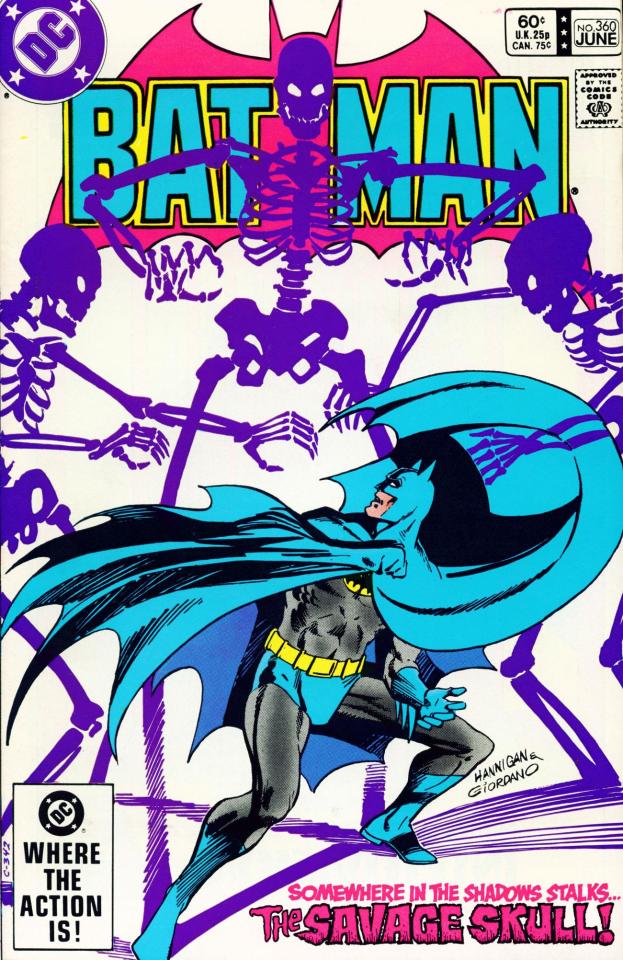
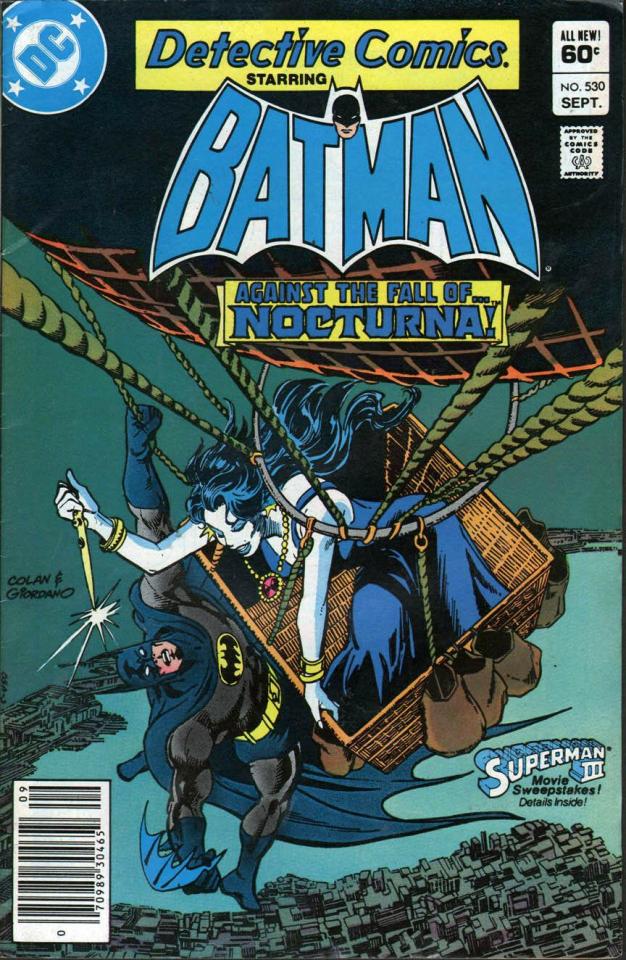
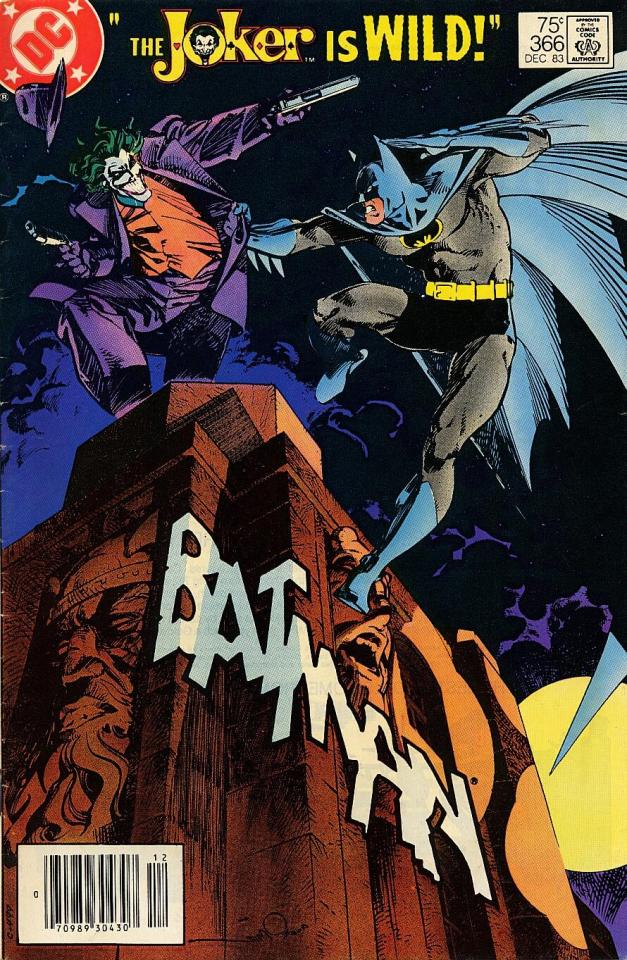
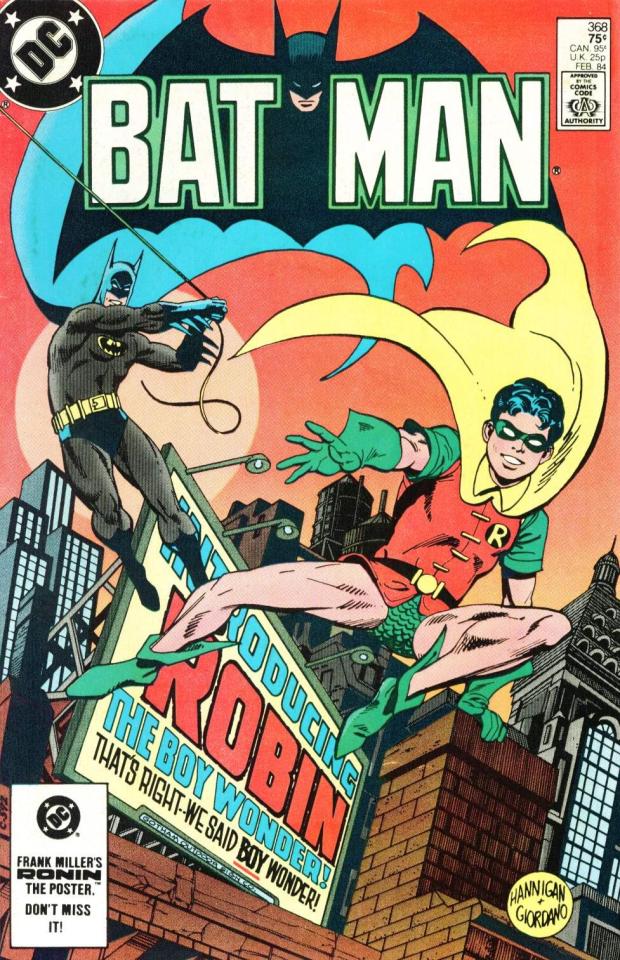
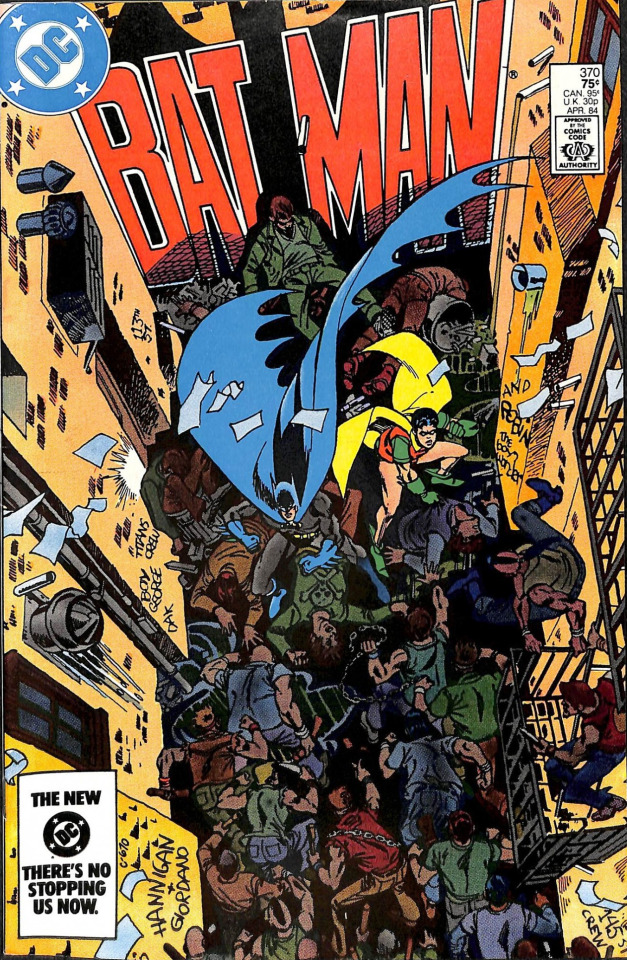
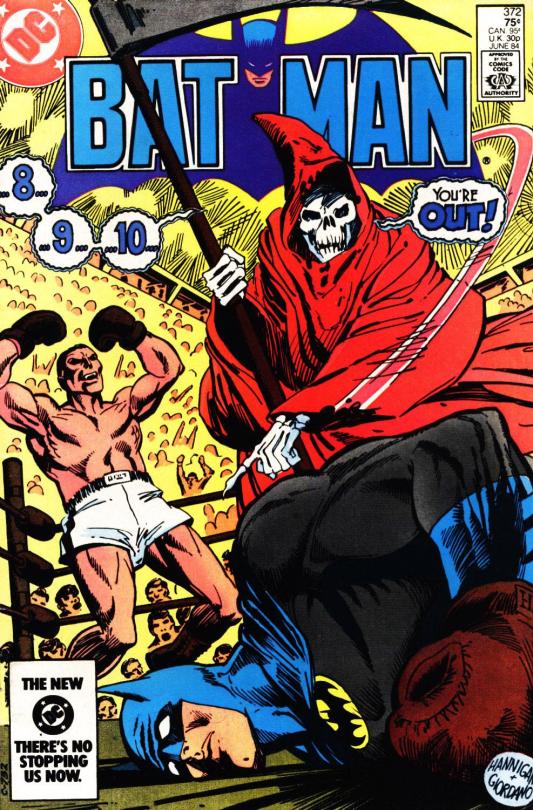

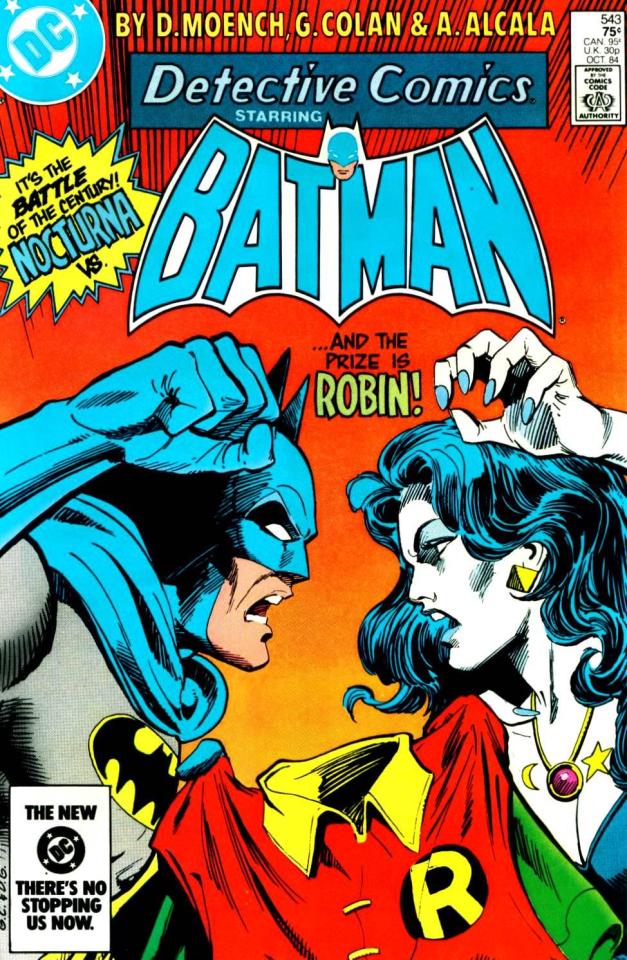
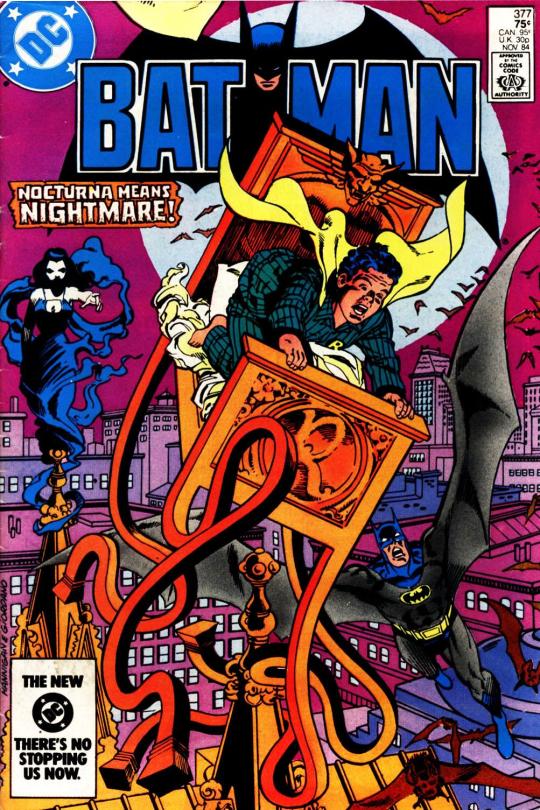
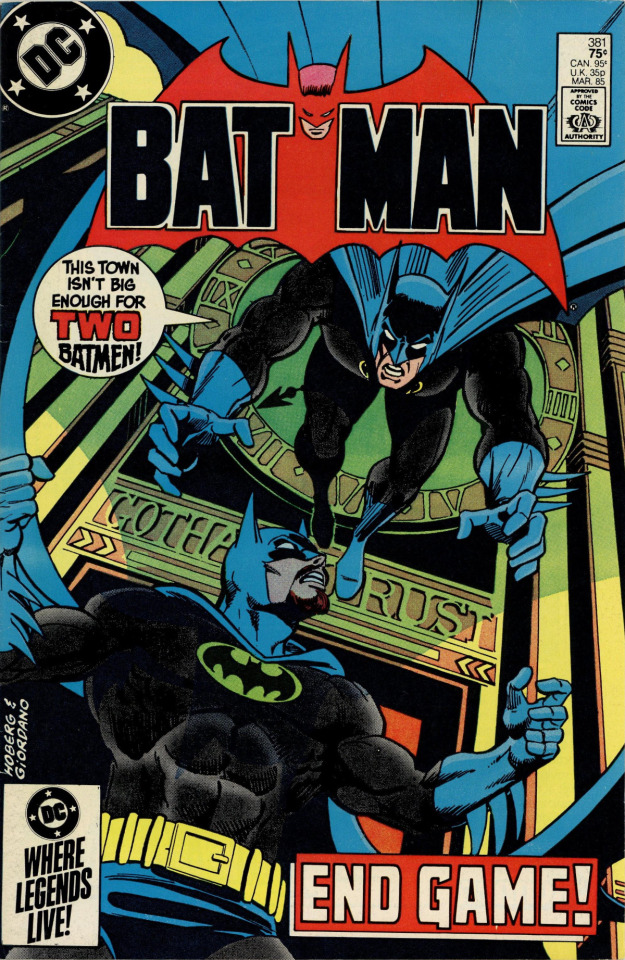
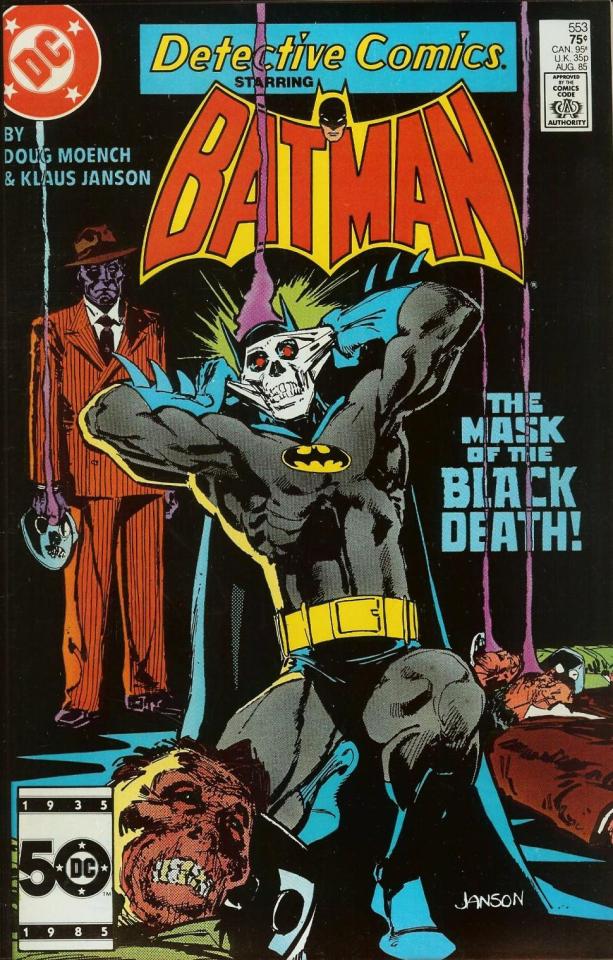
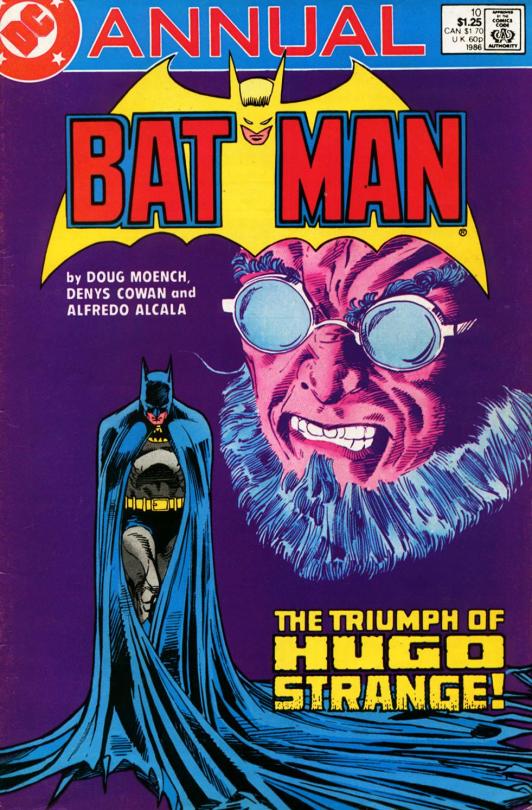
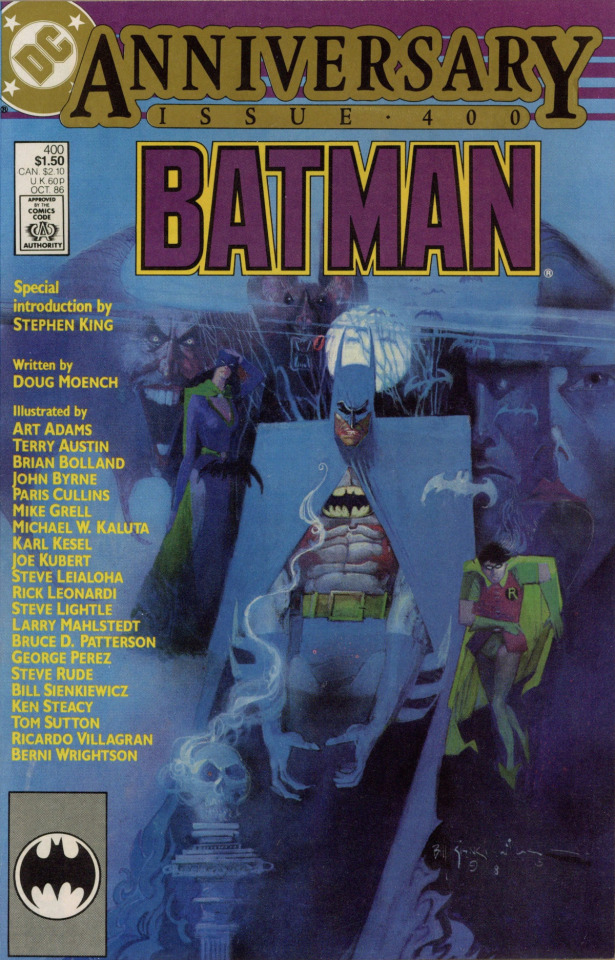
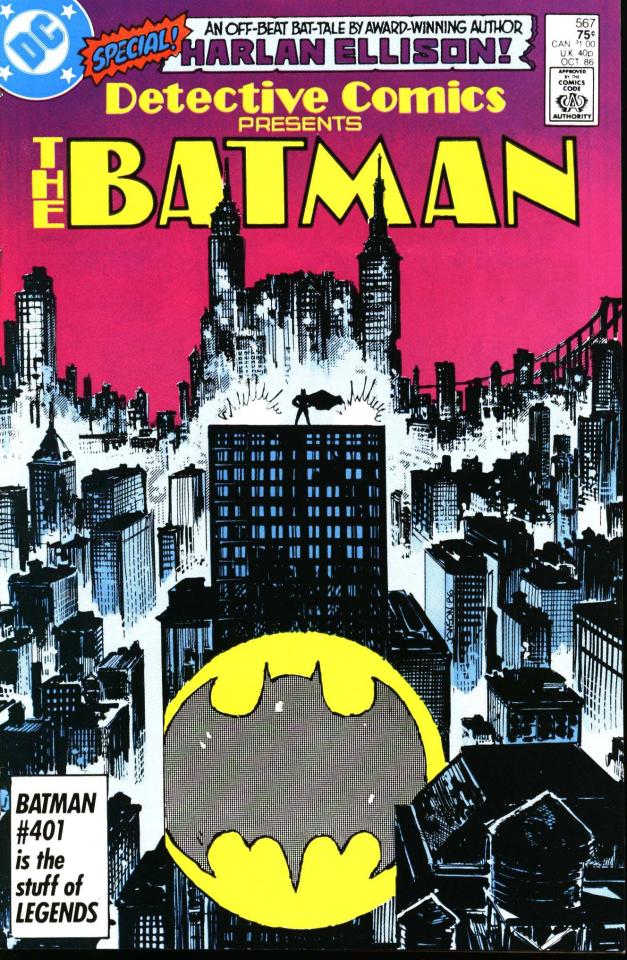
July 1983 to October 1986. In 1983, DC lured Doug Moench away from Marvel and books like MASTER OF KUNG FU and MOON KNIGHT to take over BATMAN and DETECTIVE COMICS under the editorship of Len Wein. Their run, which lasted 40 months, was the final phase of the Bronze Age Batman continuity; although it continued for some months after the end of CRISIS ON INFINITE EARTHS, everything through DETECTIVE COMICS #566 and BATMAN #400 is functionally part of pre-Crisis continuity, in particular most anything to do with Jason Todd becoming the second Robin. (Jason debuted during the end of Gerry Conway's run in early 1983, but it was Moench and Wein who oversaw Jason's actually becoming Robin.)
From 1981 to 1986, there was a tight continuity between BATMAN and DETECTIVE COMICS: a story begun in one book would continue in the other two weeks later. This was something new for Batman; there had been occasional multi-issue storylines for years, and Steve Englehart and Len Wein had introduced a certain amount of Marvel-style continuity in the late '70s, but having around 40 story pages per month allowed more room for character-driven stories, supporting characters, and subplots. When Doug Moench arrived, a central focus was on leading up to Jason Todd becoming Robin, but there were also numerous other major and minor subplots, from Alfred's attempts to connect with his adult daughter, Julia Remarque (introduced by Conway in 1981), to Gotham's messy city politics and various deadly underworld power struggles.
In MASTER OF KUNG FU, Moench's signature storytelling preoccupation had been "kinky weirdos hurting each other's feelings," and his initial run on the Bat-books also featured a series of messy, sometimes bloody romantic triangles, the most important of which involved Batman; the now-reformed Catwoman; Nocturna (Natalia Knight), a pretentious Goth burglar who attempted to adopt Jason Todd; and Nocturna's adoptive brother Anton, who became a cat burglar out of deranged obsession with Natalia and later tried to kill her so no one else could have her. It was all very grandiose and inevitably somewhat florid, but then expecting gritty, understated realism from a comic book about a man who fights crime dressed as a bat is itself pretty silly.
The strongest story in this run actually has little to do with that soap opera: "What Price the Prize?" in BATMAN #372, is an intelligent, grounded drama about an up-and-coming young Irish boxer maneuvering for a bout with a Black champion obviously inspired by Muhammad Ali, featuring some of Don Newton's finest Batman art; the conclusion in DETECTIVE #539 isn't quite as sharp, but is still one of Moench's best. Other highlights include a clash with Catman (BATMAN #371/DETECTIVE #538) in which Thomas Blake's determined belief in the magical power of his costume nearly gets both him and Batman killed over and over; a wistful story about the private life and hidden depths of boorish Harvey Bullock (DETECTIVE #549); a delightful one-shot (BATMAN #383) in which Batman repeatedly tries and fails to get some sleep; the debut of Black Mask (BATMAN #385–386 and DETECTIVE #553); a comedic tale of Batman and Catwoman on an actual date, in costume (BATMAN #392); and a distinctly '80s-Bondian espionage adventure reuniting Moench and artist Paul Gulacy (BATMAN #393–394).
Artistically, the run got off to a good start with Don Newton on BATMAN (inked by Alfredo Alcala) and Gene Colan on DETECTIVE (generally inked by Bob Smith). Newton's departure in 1984 hurt, leading to a period of artistic musical chairs and some really bad early Pat Broderick art, followed by Tom Mandrake taking over BATMAN. Mandrake gets a bad rap in some quarters, mostly because his style is looser (and about two steps further in the direction of Gene Colan) than many comics fans care to tolerate, but his work here is mostly fine, and certainly an improvement over Broderick's. The Annual has some very nice early Denys Cowan pencils, inked by Alcala, and BATMAN #400 is an all-star extravaganza art-wise.
Maddeningly, DC has never properly reprinted a lot of this material, which I think is badly overdue. If it's not as epochal as some more familiar periods both before and after, the median level of quality is pretty decent (and certainly no worse than the 1987–1991 period, which has now been reprinted in its entirety); its emphasis on characterization wouldn't be matched again in the Batman titles for many years. Denny O'Neil supposedly hated much of what Moench had done (Moench has said O'Neil especially loathed Nocturna, whom he flatly refused to revive in any form), but Denny is dead now, and in any case, his Batman stories include their share of stinkers as well as gems. I don't know that DC has any kind of real reprint strategy anymore, but I hope they won't wait until Doug Moench is dead to properly remaster and collect these issues. Doing them all (BATMAN #360–400 and Annual #10, DETECTIVE #527–567) in something akin to Marvel's Epic Collection format would probably take four volumes — there's around 1,800 pages of material, more if you include Moench's Superman/Batman stories from WORLD'S FINEST — but why not?
#comics#batman#detective comics#doug moench#ed hannigan#dick giordano#gene colan#klaus janson#harlan ellison#jason todd#nocturna#natalia knight#black mask#roman sionis#len wein#master of kung fu#paul gulacy#don newton#alfredo alcala#bob smith#tom mandrake#batromance#batcat
30 notes
·
View notes
Text
As promised, here are some of the headcanons I use in "A Wonderful Attraction" (AO3):
Magolor:
-Even though he wasn't born on Halcandra, he considers it his home planet because it made the person he is. That's why I keep saying he is Halcadran in the fanfic. He doesn't speak about his real home.
-Kirby and all his friends have forgiven him (even Meta Knight), but he's still trying to prove his trustworthiness.
-After the Lor found him in the Kirby Clash dimension, he agreed to follow her therapy program, which lasted several months. He still have huge emotional issues that he cover up with his eccentric persona.
-He has a room in the Starcutter where he stores all the artifacts he has found on his adventures. He also collects objects from other dimensions, such as books, films and video games.
-Magolor hides a tail and whiskers because of the way some people reacted when he first explored the galaxy with the Lor. Some people didn't take him seriously with his kitten-like appearance.
-Magolor has a lot of scars that he hides.
Taranza:
-When Joronia was alive, he managed the feat of both being shy and pretentious.
-Joronia's death and his guilt kept him withdrawn and he became a bubble of anxiety. But today, he's regained a little more self-confidence.
-He comes from a noble family. He has an extremely complicated relationship with his parents (I intend to explore this aspect in a fanfic).
-While pursuing his passion as a gardener, he is also a diplomat for the kingdom of Floralia. Magolor has taken Taranza to other planets such as Ripple Star with the Lor, so that he can expand the kingdom's relations. What a good friend~
-At the time of the fanfic, Taranza has long since accepted that he can never bring Joronia back to life. The problem now is to overcome the impression of infidelity when he falls in love again.
Marx:
-As obnoxious and childlike as ever.
-He's Magolor's best friend and knows many of the secrets he keeps from others.
-Although Marx is impulsive and slightly idiotic, he manages in a disturbing way to feel other people's emotions with ease.
-While Marx can sometimes be a jerk, he's extremely protective of his friends and tends to be uncharacteristically serious when it comes to a friend's trauma.
-He'll never admit out loud that he cares about his friends.
Susie:
-Since her father's death, she's taken over the company and done a complete 180°.
-Susie has empathy problems but tries her best to socialize.
-She's Taranza's confidante and best friend because they understand each other through grief.
-Although she is friends with Magolor, they maintain a kind of rivalry over who is the best mechanic.
-Susie and Marx don't get along at all, so it's a miracle they put their differences aside to put Magolor and Taranza together.
-She's very close to the Mage sisters, especially Zan.
Lor Starcutter:
-She is Magolor's mother figure mentor. She is extremely protective of him.
-She blames herself for being mute for so long, and thinks she could have avoided the whole Master Crown incident if she'd been a better mother.
-Before the Master Crown incident, she only communicated with him small caring gesture that doesn't necessarily needed to vocalize. After his redemption, she used text to communicated before finally undoing thousand of years of mutism during the Void Termina crisis to say that she loved him and was proud of who he had chose to become.
-The Starcutter's interior is basically a dimension unto itself.
-One of her strange hobbies is watching telenovelas and other TV movies, which she justifies by saying that she studies organic beings.
I can't delve deeper without spoiling some of the fanfic.
Thank you for reading!
#rainyk post#headcanon#kirby fanfic#magoranza#magolor#taranza#marx kirby#susie haltmann#lor starcutter
32 notes
·
View notes
Note
Bro this is so stupid like as a huge Sephiroth stan in particular who tends to feel very defensive of his pre-insanity self because of how much I think he deserved better, I absolutely adore Genesis too?? Genesis has a lot of issues but genuinely why the hell would we not find that interesting? Sephiroth is a mess too, hell even Angeal is a mess, but they would be so boring if they were anything normal.
And one of the funniest things is how the fans who like Seph but hate Genesis miss one of the key elements of their relationship which is that Sephiroth clearly adored Genesis himself lmao. I wish we could have learned more about Sephiroth’s relationship with Angeal actually, because the Genesis focus is so much more up-front.
Sephiroth is the one trying to call him desperately in EC and they put that in the TRAILER, Seph was the one torn up over not being able to be Gen’s blood donor (help), he’s the one wracked with guilt over Gen’s injury which wasn’t even his fault, he’s the one smiling in genuine happiness when Gen is reading Loveless in that scene, and smiling at him again when they are sparring and having fun…Sephiroth really valued Genesis as a friend and you can tell. He had every chance to fight him in the Hollander escape scene, but he just stood there and let Genesis do his thing. He didn’t even shoot back when Genesis showed up in the reactor and blasted Zack away (help💀) (Ok Seph might actually be a little too gracious with his friend but anyway….)
I know it upsets people the way Genesis acts, but clearly even Sephiroth wasn’t too fazed until the reactor scene when Genesis crossed the line. I originally hated Gen in that scene too and felt Seph’s anger but all it takes is one good analysis like that anon gave to see why Gen did what he did. You can still be pissed at him and hate that scene and even others, but bro to dismiss the entire character as a one dimensional asshole who just likes to bully people is um…how you say….braindead. You can even hate the character fr but to attack people for seeing his layers and depth?? Bruhhhh.
Gackt himself helped write the character and spoke of Gen’s nuance, how he had a glass heart, and was secretly a sweetheart but was just brought to his lowest because of his circumstances and bitterness. Very believable if you ask me. Like it IS possible to think of a character this way and not condone what they did and that’s why these haters baffle me. YOU GUYS ARE ACTING EXACTLY LIKE YOUR NEMESIS CHARACTER.
Anyway, thanks for being based Altocat
All of this. Thank YOU for being equally based, anon!
Like I said, I'm not for a moment going to argue that the writing on Genesis during Crisis Core is especially good. Only that he's a more complicated character than we give him credit for.
And, I'm just going to say it--it's EASY to go with the crowd and hate on him. A lot of famous people in the community hate Genesis so I feel like the natural response for a lot of casual fans is to just hate him by default. And like I said, totally fine. Completely fine. He's poorly written, kind of a jerk at times, and very pretentious.
But when the literal GODDESS OF THE PLANET sees value in redeeming him, there's more to him than just him being bitchy and arrogant. There are layers.
Seph loved him. Angeal loved him. Zack went out of his way to save him from himself. The in-universe canon sees value in Genesis Rhapsodos. Why can't we?
25 notes
·
View notes
Text
apparently y'all Are desperate enough for my Lomadia Oc so uh. hope you're in the mood for [checks notes] ~13 paragraphs, half of which is just description!
allow me to introduce Villom!
She doesn't have an actual name or in-universe nickname, I just call her Villom. Because she was originally a Villain Version of Lomadia from a sci-fi world for some comic idea I totally scrapped bc it sucked. Except for Villom!
So basically what if we put Lomadia in space and gave her every problem and no normal coping mechanisms
The base universe is Completely Impossible sci-fi space stuff, involving solar systems being relatively close together and having tons of habitable planets, with star trek 'convergent evolution' making everybody a Weird Human Basically. Part of these choices is that I. Don't actually like sci-fi lol. I don't think its bad I just can't Get Into It, so I did the lazy version. HOWEVER I do also use the fact that its extremely artificial and story-focused as part of the plot so its FINE
There IS also magic, but it’s generally less used, as tech is more accessible and less complicated from a user standpoint. That doesn’t mean it isn’t powerful, if you know what to look for. Thats foreshadowing!
Compared to base Lomadia, Villom is.. very immature. She has trouble identifying and controlling emotions, she's quick to anger and holds grudges. She's also more impulsive and tends towards insults and crude jokes. She's actually pretty fun to hang out with as a result, but responsibility is a role she's crushed into, and it never truly fits. She's trying her best ok
Villom starts out her story as a young adult, training to be a pilot. She does some hero shit, but breaks so many rules in the process and gets kicked out. She’s enraged by this betrayal of what was supposed to be her life, and steals a ship to go rogue and try to pursue her dreams anyways. She doesn’t exactly know what she’s doing, though, and eventually a chase causes her to crash on an unfamiliar planet, where she meets Rythian. He’s steampunk now, don’t question it
Anyways, they end up teaming up, and form the first of her crew. Later additions are Martyn, who is a mouse guy who has So Fucking Many People Who Want Him Dead, and Zoeya! Who ended up separated from Fionn following partially the plot of Mushbury, and works as the ship’s engineer. Their ship (that lasts long enough to get a name…) is called the Ask, and Villom occasionally (and jokingly) calls her crew the Answers.
(Its called the Ask because originally I gave the characters nicknames based on Norse mythology for Pretentious Reasons, those might come back later)
So everything’s all fine and poggers for a while, with the Ask’s crew causing mischief and undercutting evil empires across the worlds- and then Villom’s home planet is destroyed.
And she sees it happen.
See, one of the tropes of sci-fi that bugs me, is how understated the death of an entire planet tends to go. This is the first step of Villom realizing how truly fucked up the world they live in is- and the first step of her wondering why it has to be this way, and how to stop it.
It only gets worse from here.
No matter how many evil empires they topple, no matter how many massive threats they thwart, there’s always another one. And no matter how fast they are, they can’t stop every world-ending crisis. Villom starts learning magic, wondering if theres some kind of solution there. When she doesn’t find one, she just looks harder. Brushing so close with forces she’s alone in experiencing wears on her, compounding with their futile mission.
The breaking point is when Rythian dies. Raiding an enemy ship goes wrong, they’re outnumbered, they’re trying to retreat. Surrenders are not accepted, there.
It’s another thing she sees happen, another thing she was inches away from but unable to stop. And she can’t take it. She can’t take losing another part of her, another of the few things she could call home in this cold void.
She takes some of the things she learned looking where she shouldn’t- and kills the nearest member of the enemy team, trading a life for a life. And part of her soul as tax, of course. Just a small bit, this time.
She never tells him. Pretends it was instead an incredibly close call. He probably knows she’s lying, on some level, but he never says it.
Villom is desperate, now. There’s more and more things she’s hiding from her crew, more and more boundaries of safety she’s pushing. She trades one of her eyes for the ability to see the functions of the world itself- maybe it’s a mistake, there’s some gear stuck, and if she fixes it this infinite loop of wars will stop.
There is no mistake.
This is how the universe is intended to function.
She can’t give up. Because if she stops, she’s never going to get up again.
Maybe there’s other worlds where it’s better, where it’s safe.
Maybe there’s a way to make this world like them.
Maybe there’s a way to leave.
She’s barely human anymore, even though she looks perfectly fine. Her hair is white, her eye replaced, but that’s all. She’s replaced the things she’s traded away. She’s barely even a part of the world, anymore. Unstuck from the threads of it, floating as a constant point, unchanging and undying, snapping back into place when moved.
A lot of universes are visited by a strange woman with white hair, who never stays. Sometimes she’s a savior, or a tyrant, or merely another passerby.
One of them, somewhere, has to have an answer. The way to break the cycle. And Villom will find it- even if she has to take every one of them apart.
#long post#villom#published works#<-organizational tag this isn't like. in a book#if you actually read all of this i love you. and hopefully you now get why im obsessed with her#my cringefail girlboss <3 inventing new war crimes#if you follow the suggestions blogs you may have already seen her!
10 notes
·
View notes
Text
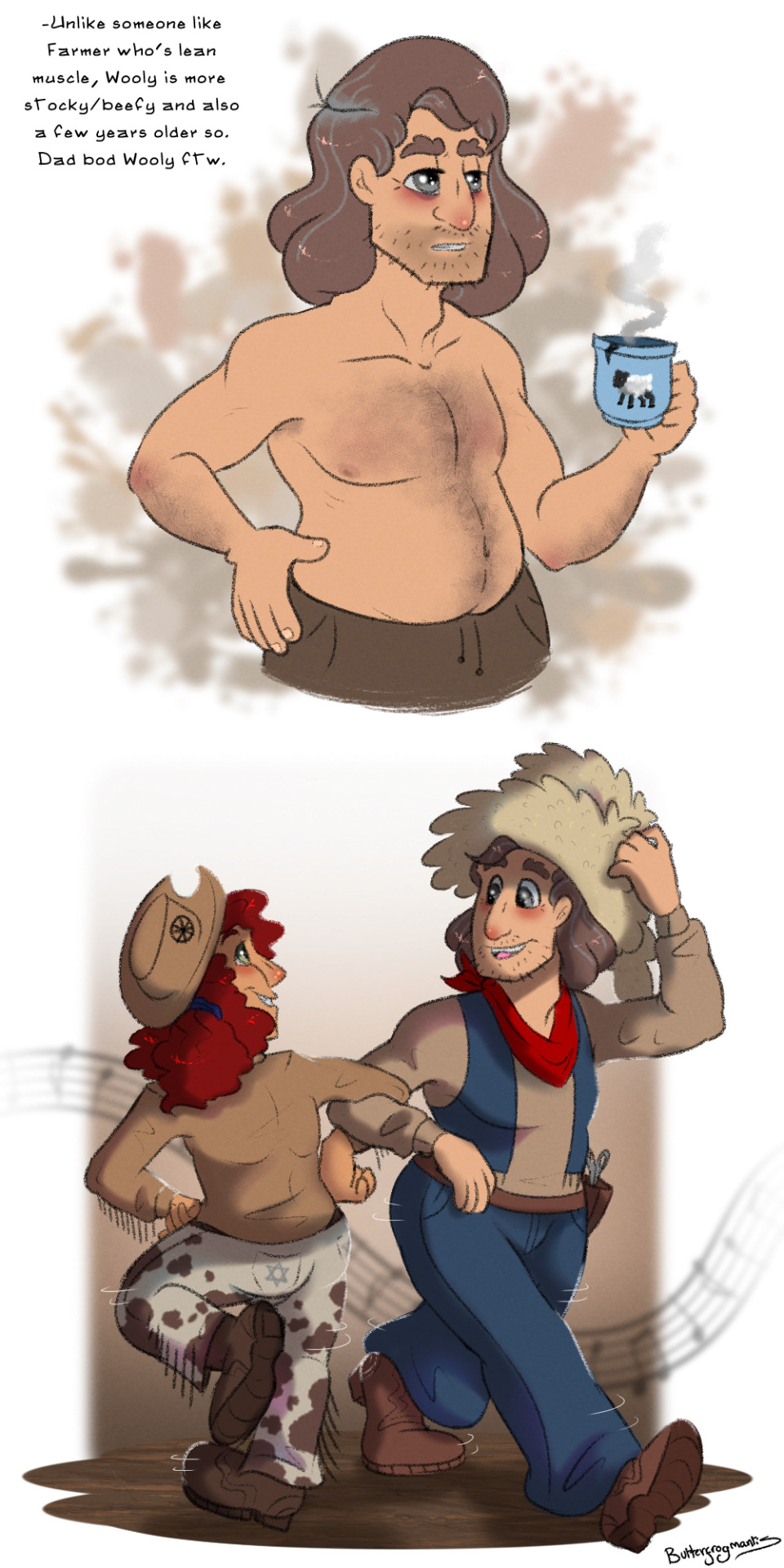
You're all forcibly locked in a room with me and a slide projector of Wooly rn /j
Anyway yes he has a vice like grip on my brain rn so enjoy some more middle aged cowboy
1.I HC Wooly as the very oldest of the first delivered gen and a few years older than the majority. A few decades mean literally nothing to smurfs but a few years can mean a lot to people so I've been sorta careful, I think if you took a snapshot of the 80's series then I HC Wooly to be around 28, some of the other older ones are 26=27 and then a small 2 year gap whilst most of the smurfs are around 20-23 and Tuffy as 19 going on 20 just to make him definitively the youngest (but like, still an adult). Bare in mind this is specifically from the events of canon so obviously going into ng and stuff you add a few years (or even a couple of decades) onto everyone and bang they're all middle aged and of course Wooly reaches his midlife crisis first which is why I've been drawing him greying & with crows feet and now comes the body type! For some reason I always compare Wooly to Farmer in my head which is silly because Farmer is lean muscle and SHREDDED and Wooly is older man beefy. Still strong don't get him wrong he can wrastle a charging ram with his bare hands but there's definitely middle aged gut under there and that's cool
2."We aint gotta do no fancy waltz - dance with me Spinny, fer the hell of it"
Extract from a fanfic I'll (probably) never write but I'm picturing a scene where there's a fancy Smurf ball organised by someone pretentious who's insisting on having a "high class function" with couples only and Spinner's pissed because he worked hard on a whole bunch of materials for the decorations and now he can't even go because the host insists on the couples rule and can't make exceptions. So now Wooly's also mad because his best friend is upset and decides to throw a "low class country fest" on the same night and everyone can come and dance to honky-tonk and actually have fun.
Wooly (c) The Smurfs
Spinner is mostly mine ig?? I never know how to tag him
23 notes
·
View notes